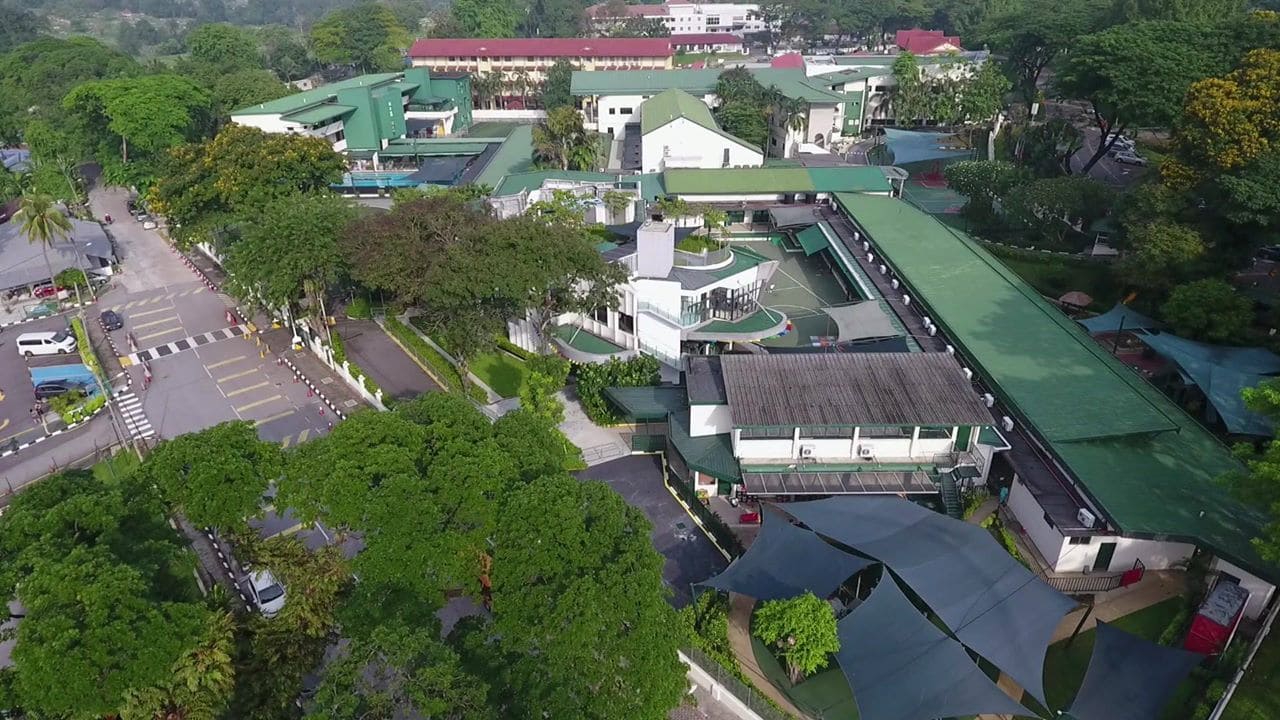The Alice Smith Experience That Guided Clara Chang to LSE
 Schooladvisor Team
Schooladvisor TeamClara Chang was born in Seoul, South Korea, where she spent the first eight years of her life. Growing up in a fast-paced city, she was surrounded by energy and movement until her family relocated to Malaysia, where a new chapter began. She joined The International School of ParkCity (ISP) in Kuala Lumpur, starting in Year 4 and staying until Year 8. Those years helped her adjust to a new country and international curriculum, but by the end of Year 8, she was ready for a new challenge.
That’s when she made the move to Alice Smith School. What drew her was the school’s long-standing reputation and deep roots in education. “I greatly enjoyed my time studying at Alice Smith.”
Studying at Alice Smith School
One of the first things Clara noticed was the school’s location. Situated in Selangor rather than central KL, Alice Smith felt more open and relaxed. The large, green campus stood in stark contrast to the dense buildings she was used to in the city. For Clara, that space was a daily source of calm. Being able to walk around, clear her head between classes, and enjoy the natural surroundings made a big difference in her school experience.
The facilities were another highlight. From top-tier sports and arts spaces to new buildings renovated in 2024, the school invested in creating a supportive learning environment. Clara had already graduated when the upgrades were completed, but she couldn’t help but admire how impressive they looked. It felt like the school was always evolving—always improving for the next generation.

Clara completed her IGCSE and A Levels at The Alice Smith School
What stood out even more, though, was the balance Alice Smith offered. Academic rigour was important, but so was well-being. Clara, who describes herself as self-driven and ambitious, found that the school gave her room to breathe while pushing her to do her best. There was structure, but also flexibility — a space where students were encouraged to pursue excellence without burning out.
Small class sizes, especially during A-Level, added to this sense of individual focus. With fewer students per class, teachers could tailor their approach and offer personal support. “Every teacher has a different teaching style, but they ask for regular feedback on their lessons and adapt to fit the needs of their class.”
“Another aspect of learning I greatly benefited from was the culture of feedback and discussion after assessments. You don’t just get a grade and move on - the teacher explains the grade, identifies what you did well, and how you can improve for the next exam. This is done in a 1-1 conversation, allowing you to reflect on your work and set your own next steps.”
Support at Alice Smith extended beyond academics. The pastoral care system was structured around year group leaders, but students could approach any teacher for guidance. Clara valued the trusting relationships she built with her teachers — relationships that allowed her to speak honestly, whether about schoolwork or personal concerns. Her teachers checked in regularly, offering advice on everything from study habits to career planning to mental health. “The teachers really care about their students, and I think it is an integral part of life at Alice Smith.”
Clara took History, Spanish, Mathematics, and Chemistry for her A Levels.
Clara’s hard work during her IGCSEs earned her a Principal’s Scholarship for Sixth Form. She then took History, Spanish, Maths, and Chemistry for A Levels. The academic challenges increased, but so did the support she received. Teachers continued to offer regular check-ins, share extra resources, and provide detailed feedback to help her grow.
Among all her subjects, Spanish left a lasting impression. The Language Department at Alice Smith stood out for its immersive approach. Clara’s learning included weekly speaking sessions with a native speaker, literature lessons supported by English teachers, and even a Hispanic cooking competition. These experiences brought the language to life. “Ms Carver, Ms Davies, and Ms Noyau were my teachers, and I am sure they will continue to inspire the next cohort.”
Equally important was the way teachers stayed updated on the latest mark schemes. They passed that insight along to students, helping them focus on key areas and better understand how to succeed.
Clara wasn’t just focused on academics during her time at Alice Smith. She threw herself into school life through various extracurricular activities and leadership roles. Over the six years she spent there, she played the cello in the orchestra and was an active member of the basketball team, even stepping up as captain of the Girls’ team at one point. These activities allowed her to grow outside the classroom and added rhythm, energy, and teamwork to her school experience.
Clara also took on the role of Senior Community Prefect, a leadership position that allowed her to help shape the school’s culture. “I organised events such as International Day, Mental Health Week, and International Women’s Day. The variety of my activities allowed me to feel connected to different corners of the school community and develop relationships with all kinds of people. It taught me how to communicate, plan, and negotiate.”
For Clara, being part of these moments was meaningful, as it helped her contribute to the broader community.
Clara is currently pursuing her BSc in International Relations at LSE
Clara’s Path to LSE and International Relations
Clara’s journey toward studying International Relations began in an unlikely place — the school bus. For six years, she made the daily 40-minute commute to Alice Smith School, and while the ride started as a routine, it gradually turned into something more meaningful. At first, she’d spend the time dozing off or playing games on her phone. But eventually, she got bored. That’s when she started reading the news, specifically, The New York Times.
Those 40 minutes each morning opened up a new world. “In a busy life of balancing schoolwork and extracurriculars, it is easy to forget about things beyond your immediate day-to-day. Reading about the wider world reminded me that there were massively important things happening that were completely beyond my life. It was fascinating.”
The more she read, the more she began to see patterns. Regions and themes started making sense, and what once seemed complex became accessible. Over time, it was international affairs, especially the dynamics between major powers and the evolving influence of the Global South, that captured her attention the most. That curiosity eventually solidified into a clear academic goal: to study International Relations at university.
So, why the London School of Economics (LSE)?
“LSE is very unique in that it has its own International Relations (IR) department. Most universities do not have a separate IR department. LSE IR has a rich history, and its 3-year programme is well-structured in a way that combines IR theories and historical context with studying contemporary issues. Also, despite some misconceptions, LSE is a campus university located in central London, with many exciting things to do. London is also the hub for diplomacy, so there really is no better place to study International Relations.”
Clara is passionate about global governance and making a real-world impact.
Behind her successful application to LSE was the strong support system at Alice Smith. Clara credits the Higher Education (HE) team for being realistic and honest throughout the process. As early as May, the team reviewed her personal statement multiple times, offering specific feedback and suggesting relevant books to read. They made sure she knew her statement inside and out, which gave her confidence in case of interviews.
It wasn’t just the HE team, though. Clara’s teachers went above and beyond, checking in on her, helping with interview prep, and offering encouragement during a particularly demanding time. Mr. Waight and Mr. Howard stood out as strong sources of motivation and moral support. And of course, her family was there through it all, a steady presence during the highs and lows of the application cycle.
Looking back, the contrast between Alice Smith and LSE is clear. Like many students transitioning to university, Clara found the shift significant. But while LSE is often seen as intense and career-focused, she has experienced it as a welcoming and thought-provoking place. “I think that my positive experience at Alice Smith helped to shape my values, and I strive to be a kind and open-minded person who can connect with a variety of people that I meet at LSE and London as a whole.”

